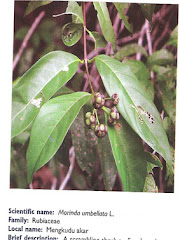The Mountain Areas Conservancy Project (MACP), came into being as a direct result of biodiversity loss in Pakistan’s mountains. Using community based communication as an approach, MACP intends to protect biodiversity and ensure its sustainable use in the Karakoram, Hindukush and Himalayan mountain ranges. The project is funded by GEF/UNDP, and being executed by IUCN Pakistan. WWF – Pakistan is implementing the environmental education component of MACP.
MACP is operating in four conservancies: Tirich Mir and Qashqar in NWFP and Gojal and Nanga Parbat in the Northern Areas. Together these four conservancies cover 16, 365 square kilometers and are inhabited by a population of 231, 000 people, most of whom are dependant on the resources of the surrounding forests.
WWF – Pakistan’s Awareness and Communication Strategy encompasses a multi-dimensional approach towards environmental awareness and conservation education. A major component of this strategy is imparting environmental education to rural communities.
This past year was marked by the publishing of Conservation and Islam, a book on how the Holy Quran enjoins conservation of natural resources and protection of the environment, and did so fourteen hundred years before anyone else thought of it. The book is in Urdu, with an English translation on the way.
Under MACP, WWF publishes a host of awareness raising materials, such as posters, brochures and factsheets. Electronic media such as radio, videos and CDs are part of the community outreach programme of MACP, as well as capacity building workshops to help rural communities understand the need for biodiversity conservation, and learn how to make it happen.
أَلَمْ تَرَ أَنَّ اللَّهَ يُسَبِّحُ لَهُ مَنْ فِي السَّمَاوَاتِ وَالأرْضِ وَالطَّيْرُ صَافَّاتٍ كُلٌّ قَدْ عَلِمَ صَلاتَهُ وَتَسْبِيحَهُ وَاللَّهُ عَلِيمٌ بِمَا يَفْعَلُونَ Tidakkah kamu tahu bahwasanya Allah: kepada-Nya bertasbih apa yang di langit dan di bumi dan (juga) burung dengan mengembangkan sayapnya. Masing-masing telah mengetahui (cara) solat dan tasbihnya, dan Allah Amat Mengetahui apa yang mereka kerjakan. an-Nur:41
Tazkirah
Sami Yusuf_try not to cry
mu'allim Muhammad Rasulullah Sallallahu alaihi waSalam
ummi_mak_mother_ibu_Sami Yusuf
zikir Tok Guru Nik Abdul Aziz Nik Mat Mu'allimul Mursyidi
syeikh masyari afasi
ruang rindu
song
Arisu Rozah
Usia 40

Mudah mudahan diluaskan rezeki anugerah Allah
usia 40 tahun

UPM

Kuatan Pahe Darul Makmur
pemakaian serban semsa menunaikan solat_InsyaAllah ada sawaaban anugerah Allah
Rempuh halangan

Abah_menyokong kuat oengajian Ijazah UPM

usia 39 tahun

usia 23 tahun_UPM
An_Namiru

Ijazah Pengurusan Hutan UPM

General Lumber_Nik Mahmud Nik Hasan

Chengal

Tauliah

Semasa tugas dgn general lumber

PALAPES UPM

UPM

Rumah yang lawa

Muhammad_Abdullah CD
semasa bermukim di Kuatan Pahe Darul Makmur
Ijazah

air terjun

Borneo land

GREEN PEACE
GREEN PEACE
Kelang

Ahlul Bayti_ Sayid Alawi Al Maliki

Asadu_ Tenang serta Berani

atTiflatul Falasthiniin

Sayid Muhammad Ahlul Bayt keturunan Rasulullah

AnNamiru_SAFARI_Kembara

AnNamiru_resting

Hamas

sabaha anNamiru fil nahri

Namir sedang membersih

Tok Guru Mualimul_Mursyid

An_Namiru
.jpg)
Namir_istirehat
.jpg)
SaaRa AnNamiru fil_Midan
.jpg)
Renungan Sang Harimau_Sabaha AnNamiru
.jpg)
Syaraba AnNamiru Ma_A
.jpg)
AnNamiru_Riadhah
.jpg)
AnNamiru_Riadhah
.jpg)
AnNimru ma_A waladuha
Namir fil_Ghabi (sebut Robi...
Namir

AdDubbu_Beruang di hutan

Amu Syahidan Wa La Tuba lil_A'duwwi

AsSyahid

Namir

Tangkas
najwa dan irah

sungai

najwa

najwa

Kaabatul musyarrafah

unta

Jabal Rahmah

masjid nabawi

masjid quba

dr.eg

najwa dan hadhirah

along[macho]
![along[macho]](https://blogger.googleusercontent.com/img/b/R29vZ2xl/AVvXsEjuMi7D33CmR0_KXrCW2XigfLcUuQurcvtqOS139ncCwEzCyB-jUopk7QK7anADIenJEm2S0N6gAY1ubnACYXewgiAsI3rBjnLTawM39alLL-rEopOoVqn0w5WpLhPJH3hrXNtchEhgtyaI/s240/P7150023.JPG)
harissa dan hadhirah

adik beradik
Tongkat Ali

Tongkat Ali
herba kacip Fatimah
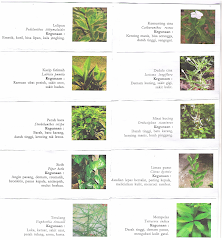
herba Kacip Fatimah
hempedu beruang
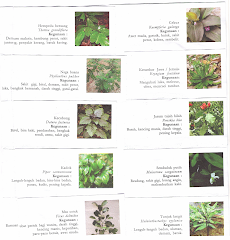
hempedu beruang
hempedu bumi

hempedu bumi
herba misai kucing

herba misai kucing
herba tongkat Ali
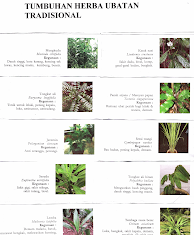.png)
Tongkat Ali
Ulama'

Ulama'
kapal terbang milik kerajaan negara ini yang dipakai pemimpin negara

kapal terbang
Adakah Insan ini Syahid

Syahid
Tok Ayah Haji Ismail

Saifuddin bersama Zakaria

Dinner....
Sukacita Kedatangan Tetamu
Pengikut
Kalimah Yang Baik

Ubi Jaga

Ubi Jaga
Arkib Blog
Burung Lang Rajawali

Chinese Sparrowhawk
Kelicap Mayang Kelapa
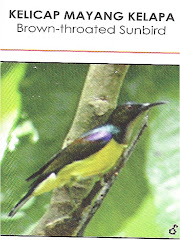
Brown-Throated Sunbird
Kopiah

Pokok Damar Minyak

Kacip Fatimah
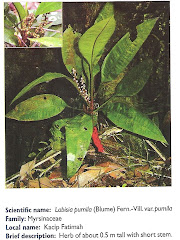
Mengkudu Akar
